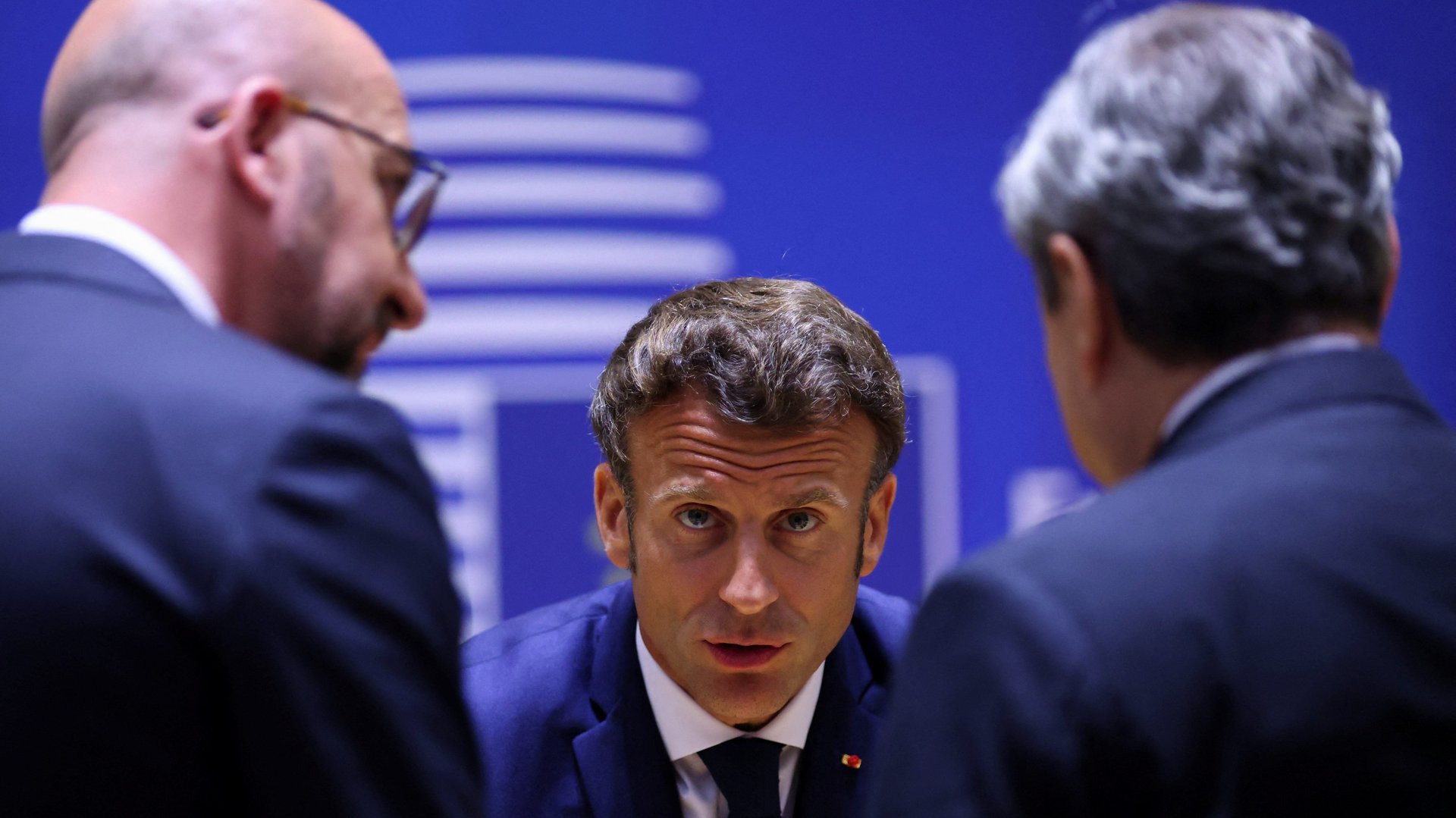Beijing’s lockdown eases slowly
Good morning, Quartz readers!


Good morning, Quartz readers!
Here’s what you need to know
Beijing started to ease lockdown restrictions. Some public transport and venues reopened; however, a zero-covid policy remains in place, with one rule breaker sending over 5,000 of his neighbors into quarantine. Shanghai is set to end a two-month lockdown on Wednesday.
Russia is likely to cut off gas to the Netherlands and Denmark. Both countries refused to pay Russia’s Gazprom in rubles and are expecting the company to stop shipments. Meanwhile, Ukraine’s president Zelenskyy asked EU leaders to act quickly on an oil embargo.
One billion meth tablets were seized in Asia. A record 172 tons of the drug were confiscated in east and southeast Asia last year, said the UN. The increase came as criminal groups capitalized on the pandemic and regional instability.
The EU fell short of its climate spending target. Auditors found the EU overstated its spending by at least $77.6 billion (€72 billion) due to “loopholes” in its tracking system.
Monkeypox is unlikely to become a pandemic, said the WHO. However, the agency may accelerate research and boost funding given the surge in cases.
Kenya hiked rates for the first time in seven years. Financial regulators voted to increase interest rates in response to inflation concerns. It joined South Africa and Nigeria, who also raised rates in recent weeks.
What to watch for
Tech giants Salesforce and HP will publish their earnings today. Salesforce saw shares lose 35% of their value this year amid volatility in the Nasdaq, despite a 26% year-over-year revenue increase during the previous quarter. As for HP, analysts predict the company’s performance will get a boost from increased demand for commercial PCs amid ongoing economic recovery.
Both companies have recently seen billionaire investment. George Soros, who was spotted at Davos last week warning of the end of civilization, increased his fund’s stake in Salesforce by 68% earlier in the year. Meanwhile, Warren Buffett upped his HP holdings in April, buying nearly $5 billion worth of shares and increasing his stake to 11.5%. The move made Buffett’s Berkshire Hathaway the company’s controlling shareholder.
China is no longer India’s largest trading partner
That title now goes to the US. Bilateral trade between the US and India stood at $119.4 billion in the financial year ending March 2022, ousting China from the top spot. This is up from $80.5 billion the year before, according to data from the Indian Ministry of Commerce and Industry.

It’s not the first time the countries have leap-frogged one another in the rankings. China most recently took the top trading spot from the US in 2020.
It’s likely that bilateral trade between India and the US will continue to grow. India is part of the newly formed, US-led Indo-Pacific Economic Framework (IPEF). The 14-country economic agreement, which does not include China, aims to strengthen US alliances and economic cooperation in the region
Power play in the Indo-Pacific
Last week, US president Joe Biden made some strong statements about China and Taiwan, though they were later walked back. The latest issue of the Weekend Brief—available exclusively for members—lists what factors to keep an eye on that could affect how everything shakes out.
We’ll give you one for free: the Communist Party leadership congress. Xi Jinping is expected to take a third term at the event, which will be held in the second half of this year. Expect a lengthy speech where he lays out his vision for China’s road ahead.
Read the rest—and a lot more—in the latest Weekend Brief. You’ll need a Quartz membership, but good news, it’s 40% off if you use this link.
Surprising discoveries
The Mona Lisa got some cake… A climate activist dressed as an elderly woman smeared the protective glass with cream. The enigmatic portrait remains unharmed.
… and these paintings may be fake. The FBI is investigating the origins of 25 artworks allegedly painted by Jean-Michel Basquiat.
The supercomputer race heats up. The US-built Frontier has outstripped Japan’s Fugaku as the world’s fastest supercomputer, ending its two-year reign.
Bananas are anxiety-inducing. At least, that’s the case for male mice, according to scientists at McGill University. Certain chemicals in the fruit lead to spikes in stress hormones.
Smell-o-vision might arrive sooner than you think. Some companies are creating scents that pair with virtual reality. 🎧Tune in to learn more about how the metaverse is getting meta-sensory in this week’s episode of the Quartz Obsession podcast.
👃 Listen on: Apple Podcasts | Spotify | Google | Stitcher
Our best wishes for a productive day. Send any news, comments, flying patisserie, or anxiety-reducing fruit to [email protected]. Reader support makes Quartz available to all—become a member. Today’s Daily Brief was brought to you by Amanda Shendruk, Susan Howson, Mimansa Verma, and Julia Malleck.